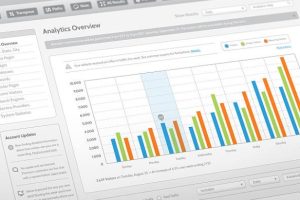Local SEO Tips Every Small Business Owner Should Know. Running a small business is no small feat, right? You’ve got a million things on your plate, from managing staff to balancing budgets, and of course, finding new customers. And in today’s digital world, that last part means being visible online—especially in your local area. That’s where Local SEO (Search Engine Optimization) comes in. Don’t worry if it sounds a bit techy! I’m going to break it down for you, step-by-step, so you can start attracting more local customers without getting bogged down by the details.
What is Local SEO, and Why Should You Care?
First things first: what exactly is Local SEO? Simply put, Local SEO is the process of optimizing your online presence to attract more business from relevant local searches. Think about it—when someone pulls out their phone and types “coffee shop near me” or “plumber in [your city],” you want to be one of the first businesses they see. That’s what Local SEO does. It helps you show up at the top of search results when people in your area are looking for services you provide.
If you’re a small business owner, Local SEO is your secret weapon. It’s a low-cost, high-impact way to drive foot traffic and online visibility in your community. So, let’s dive into some practical tips you can start implementing today.

Claim and Optimize Your Google Business Profile
If you do one thing after reading this post, make sure it’s setting up and optimizing your Google Business Profile (previously called Google My Business). This profile is what shows up when people search for your business on Google or Google Maps. It’s like your business’s personal billboard on the internet!
Here’s how you can claim and optimize your profile:
- Claim your business: Head over to Google Business Profile and follow the steps to claim your listing.
- Complete every section: Add your business hours, address, phone number, website, services, and photos of your business. The more complete your profile, the better.
- Choose the right category: Make sure you select the category that best represents your business.
- Encourage customer reviews: Customer reviews are a big deal for local SEO. Ask happy customers to leave reviews, and be sure to respond to them—whether they’re good or bad.
Keep Your NAP Consistent
No, I’m not talking about taking a mid-day snooze (though, we could all use one sometimes, right?). In Local SEO, NAP stands for Name, Address, and Phone number. Keeping your NAP consistent across the web is critical because Google checks that your information matches everywhere you appear—whether it’s on your website, Yelp, social media, or local directories.
Here’s what you need to do:
- Double-check your NAP on all platforms where your business is listed.
- Use tools like Moz Local or BrightLocal to find and fix inconsistencies.
- Don’t forget to update this info if your business moves or changes phone numbers.

Optimize Your Website for Local Searches
Your website is your home base, so it needs to be locally optimized too. Here are a few easy ways to do that:
- Use local keywords: Sprinkle location-based keywords throughout your website. For example, if you’re a bakery in Austin, Texas, phrases like “best Austin bakery” or “Austin cupcakes” should pop up in your site’s titles, meta descriptions, and content.
- Create a contact page: Include your business address and embed a Google Map so customers can easily find you.
- Schema markup: This one’s a bit more technical, but it helps search engines understand your business better. If you’re not sure how to add schema markup, you can use free tools like Google’s Structured Data Markup Helper.
Build Local Citations
A local citation is any mention of your business’s name, address, and phone number (NAP) on other websites, like Yelp, TripAdvisor, or local business directories. These citations boost your credibility and help search engines verify that your business is legitimate.
Here’s how to start:
- List your business on popular directories like Yelp, Bing Places, and Apple Maps.
- Make sure your NAP is accurate across all listings.
- Regularly audit your listings to keep the information up-to-date.
Encourage and Manage Online Reviews
We all know that people trust online reviews as much as personal recommendations. And when it comes to Local SEO, reviews play a significant role in how search engines rank your business. More reviews (especially positive ones) signal to Google that your business is trustworthy.
Here’s how to get the ball rolling on reviews:
- Ask for them: Don’t be shy—happy customers are usually more than willing to leave a review. Send follow-up emails or ask in person.
- Respond to reviews: Whether it’s a glowing five-star review or a not-so-great one, responding shows you care about your customers’ experiences.
- Address negative reviews calmly: Every business gets a bad review now and then. Take the opportunity to turn a negative review into a positive by showing that you listen and take action.

Don’t Forget Mobile Optimization
We’re living in a mobile-first world. In fact, most local searches happen on mobile devices. So, your website needs to load quickly and look great on smartphones. Here’s what you can do:
- Make sure your site is responsive, meaning it adjusts to fit any screen size.
- Optimize images so they load faster.
- Use larger fonts and buttons to make your site easy to navigate on a small screen.
Track and Measure Your Success
Once you’ve implemented these Local SEO tips, it’s time to measure what’s working. Tools like Google Analytics and Google Search Console can help you track your traffic and see how well your business ranks in local searches. Keep an eye on important metrics like:
- Organic search traffic
- Local keyword rankings
- Review growth and feedback
By regularly analyzing your data, you’ll be able to fine-tune your Local SEO strategy and keep improving.
Conclusion: Take the First Step Today
Getting started with Local SEO doesn’t have to be overwhelming. Just by claiming your Google Business Profile and ensuring your NAP info is consistent, you’re already ahead of the game. The key is to stay consistent and keep improving little by little. As a small business owner, every local search click could turn into a customer walking through your door!
You may also be interested:
